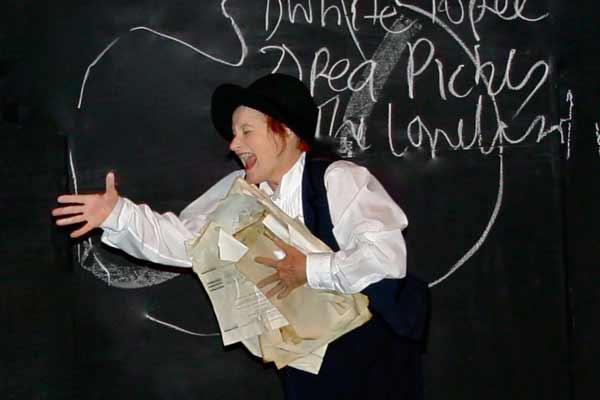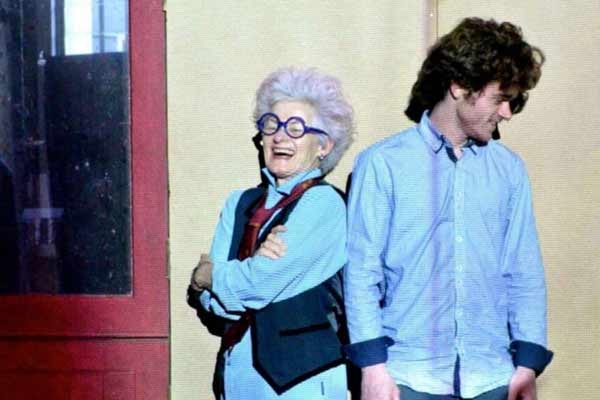Brisbane theatre-maker Margi Brown Ash performs her plays ‘He Dreamed A Train’ and ‘Eve’ back-to-back.
There aren’t a lot of theatre-makers like Margi Brown Ash. The Brisbane-based performer/writer has been creating thoughtful and personal works for the stage for over 40 years. Now she’ll be revisiting two of her works for a series of performances that will see her performing them back-to-back at Brisbane Powerhouse. “It’s crazy,” Margi exclaims. “But, I’ve been performing now for 40 years, and it’s time to do a marathon.”
The two works being revisited are ‘Eve’ and ‘He Dreamed A Train’. The plays form a trilogy with an earlier work, ‘Home’, which is co-created as well as 'Eve' with Director Leah Mercer and 'I Dreamed A Train' with Ben Knapton. “The theme is ‘how do we belong in our culture’. How do we belong in this world that is constantly changing? We really wanted to explore this idea of belonging and of how do you create home. Every play comes up with a different answer.”
‘Eve’ has had a long gestation due to its confronting nature. It’s about Australian author Eve Langley, who published two books in the 1950s before being committed by her husband to a mental institution in New Zealand. “At the beginning of the play she is 74, and she’s in a very small world because of everything that has happened to her. Through her imagination, her world opens up and her ghosts visit her. What we’re wanting to do is rewrite Eve Langley’s story so that the Australian public no longer see her as schizophrenic, which is what her diagnosis was, but an artist trying to survive.”
 'Eve'
'Eve'With ‘Home’, Margi explored how she felt she didn’t belong in Brisbane. ‘Eve’ also explores belonging, but through another perspective. “After ‘Home’, we thought how can you understand home and belonging without understanding not belonging. When we were talking about belonging and not belonging, I though Eve didn’t belong. But, over this period of working on this play I’ve realised Eve actually did belong, but she belonged in her own way.”
‘He Dreamed A Train’, like ‘Home’, tells a personal story.
“My brother was diagnosed with a terminal illness, and I no longer knew what belonging meant because I was thrown into turmoil. He wrote a book about his dream. He wanted to connect all the country towns that had fallen to the wayside with a solar-powered train made out of an airplane fuselage. My promise to him was I’d dramatise his novel. What was written was my relationship to my brother and how I dealt with the situation. So, here I am thinking I know what belonging means and doesn’t mean, and then having this diagnosis in the family I suddenly don’t know where I belong anymore. So I went to my art form to figure out my issues.”
Revisiting the works excites Margi. On a personal note, it may be the last chance she has to act alongside her son Travis Ash due to academic pursuits. The other is giving these works a new life. “Always in independent theatre, rarely do you get a chance to do it again. Usually you put it on and then it’s gone. We’re committed to not throw work out; to actually continue to refine it. That’s how works become part of the literature of our country.”






